Антверпен – самый крупный город Фламандского региона и второй по размеру в Бельгии. Известен как малая родина живописца Питера Пауля Рубенса, своей жутковатой легендой о великане Дрюоне Антигоне отрывающем руки, а также как центр обработки алмазов – “Бриллиантовая столица”. В Антверпене очень размеренный и неспешный ритм жизни, тут довольно рано закрываются все магазины и рестораны, люди никуда не торопятся, а количество достопримечательностей и интересных мест приятно радует. В этой статье разберёмся что посмотреть в Антверпене обязательно за один или два дня.
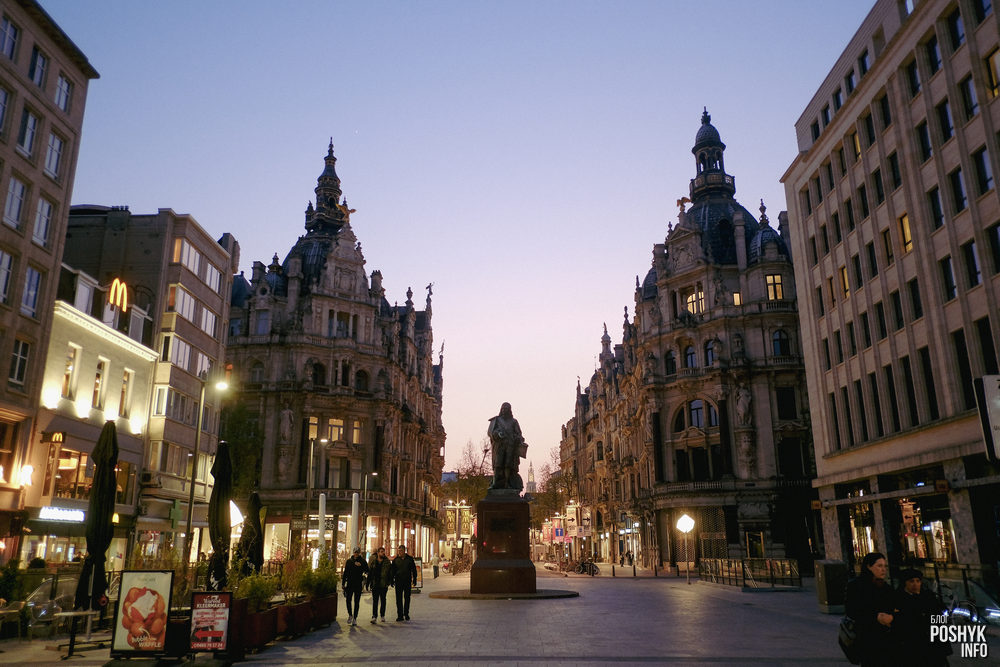
Центральная достопримечательность Антверпена – массивный собор Богоматери (Cathedral of Our Lady Antwerp). Именно этот объект попадает во все ТОПы и списки, скажу больше, даже если вас не интересует архитектура – этот храм обязательно стоит увидеть.
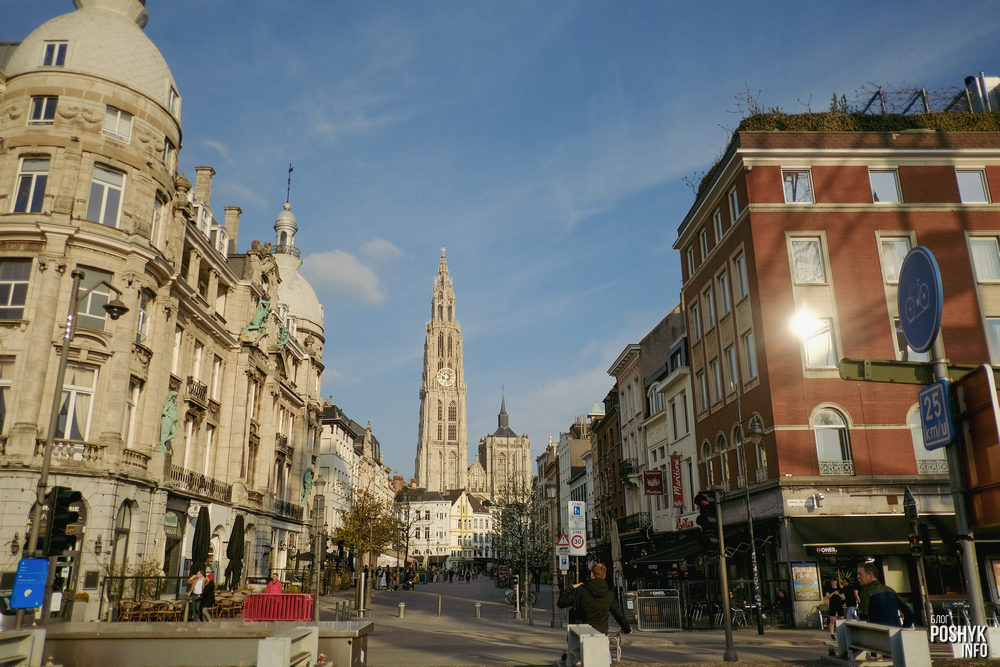
Собор выполненный в архитектуре поздней готики начали строить ещё в середине 14 века, но любопытно, что официально закончить здание так и не смогли.
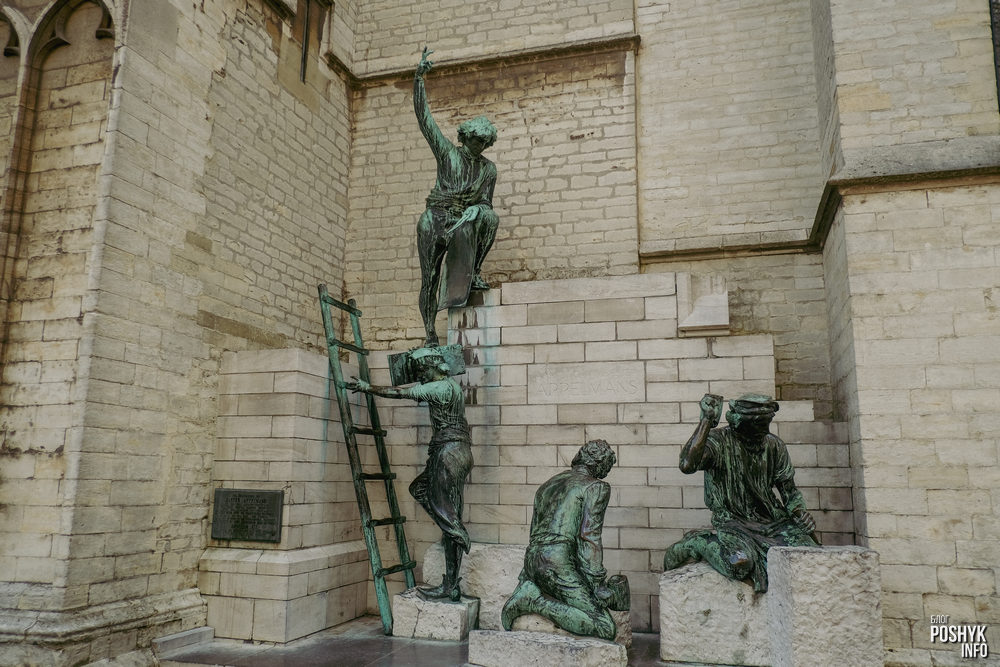
Доминанта храма – 123-метровая Северная башня, отлично видимая со всех уголков города. Южная башня планировалась такой же по высоте и стилю, но найти средства чтобы её закончить так и не сумели.
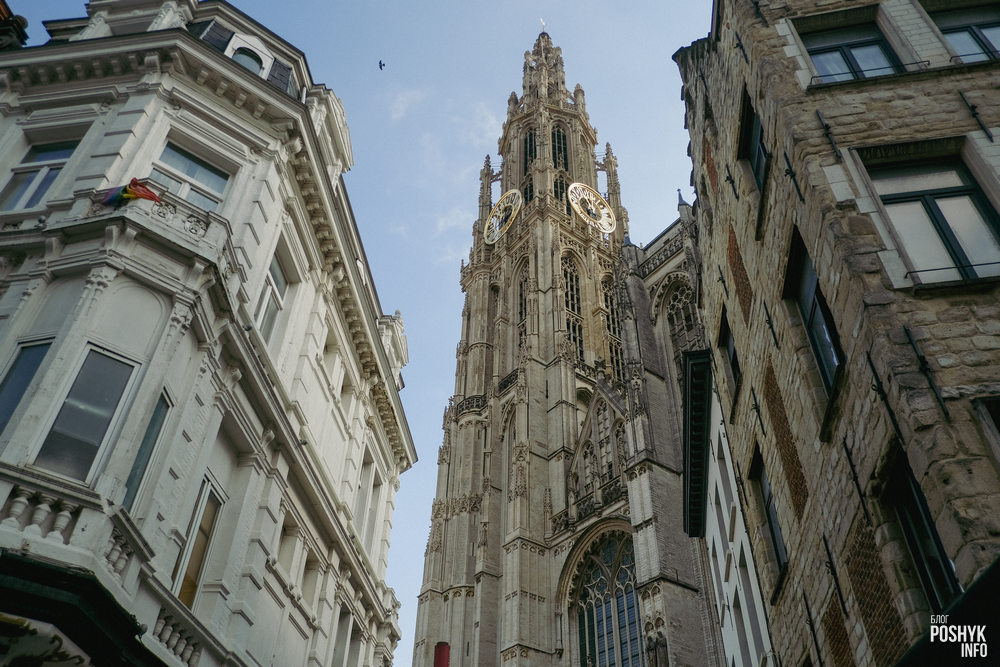
За свою долгую историю Антверпенский собор пережил множество трагичных событий и бедствий: войны, пожары, разграбления и революции. Храм разрушали и вновь восстанавливали, в конце 18 века администрация города даже задумывалась совершить грандиозную ошибку и снести этот памятник архитектуры. Однако с годами собор стал неотъемлемой частью города и главной точкой притяжения для всех туристов.
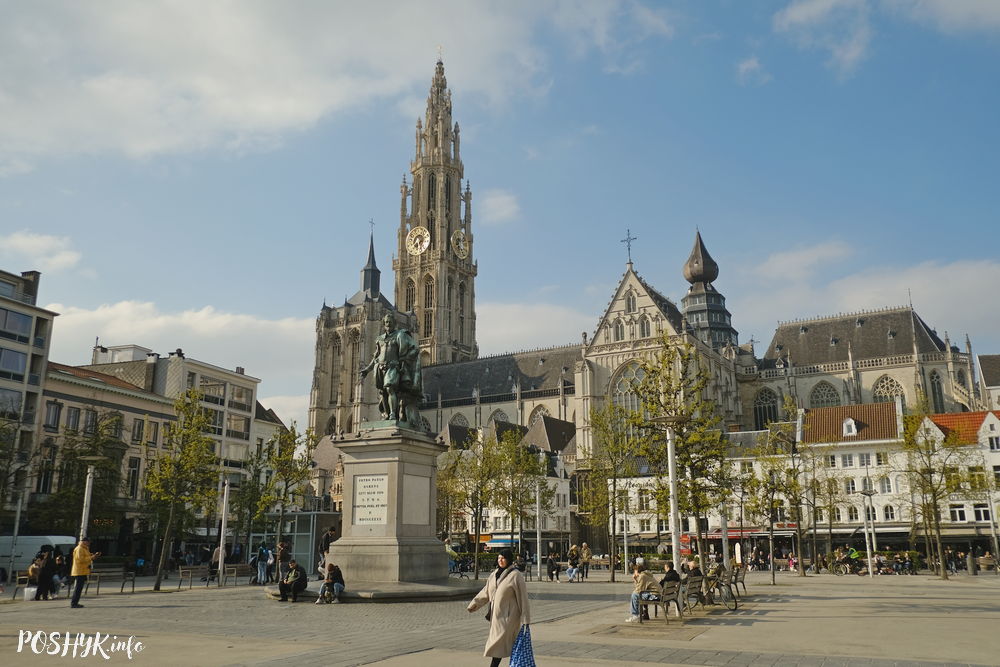
Попасть внутрь собора Богоматери можно на платной основе, входной билет стоит 12 евро с человека. Работает с 10 до 5 вечера по будням, в выходные график работы сокращается на 2 часа.
Посмотреть экскурсии и развлечения в Антверпене
Перед главным входом в храм обратите внимание на милейшую скульптура мальчика Нелло и его пса Патраше, укрытых брусчаткой словно одеялом.

Что означает эта скульптура? Есть довольно грустная легенда-история, согласно которой мальчик сирота Нелло нашел покалеченного пса Патраше, с которыми они стали лучшими друзьями. Перед стенами собора они проводили долгие дни и ночи в ожидании возможности попасть внутрь чтобы посмотреть на роспись и декор. К сожалению денег на входной билет у друзей не было и однажды, в морозный день, так и не попав внутрь, мальчик со своей собакой замёрзли у стен Антверпенского собора.
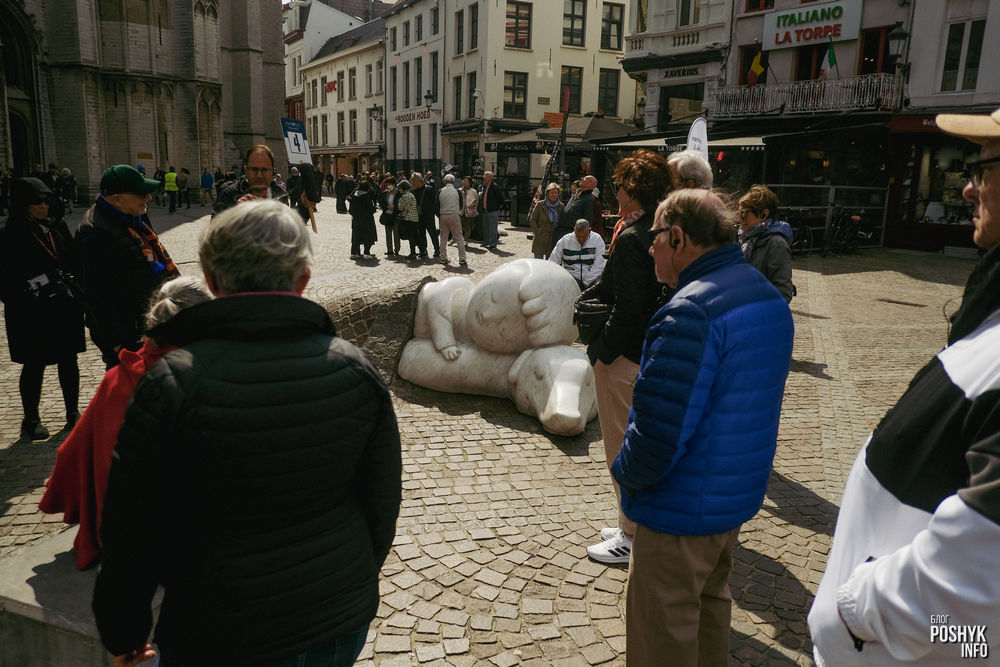
Пройдя от этой достопримечательности сквозь узкую улочку вы наткнётесь на Рыночную площадь, где находятся те самые бельгийские домики с бесчисленных фотографий и рекламных буклетов. В этой части Антверпена концентрируется вся туристическая жизнь города – нужно миленькое кафе, купить сувенир или съесть бельгийскую вафлю? Тогда вам обязательно сюда.

В центре площади размещается необычная скульптура-фонтан Брабо. На верхушке композиции человек с оторванной рукой, бросающей её в воду. Не пугайтесь, если верить легенде (той которая про кровожадного великана), то даже название города Антверпен – образовано от этого жуткого процесса (имеется в виду, что перевод с нидерландского “hand werpen” будет как раз “бросать руку”).
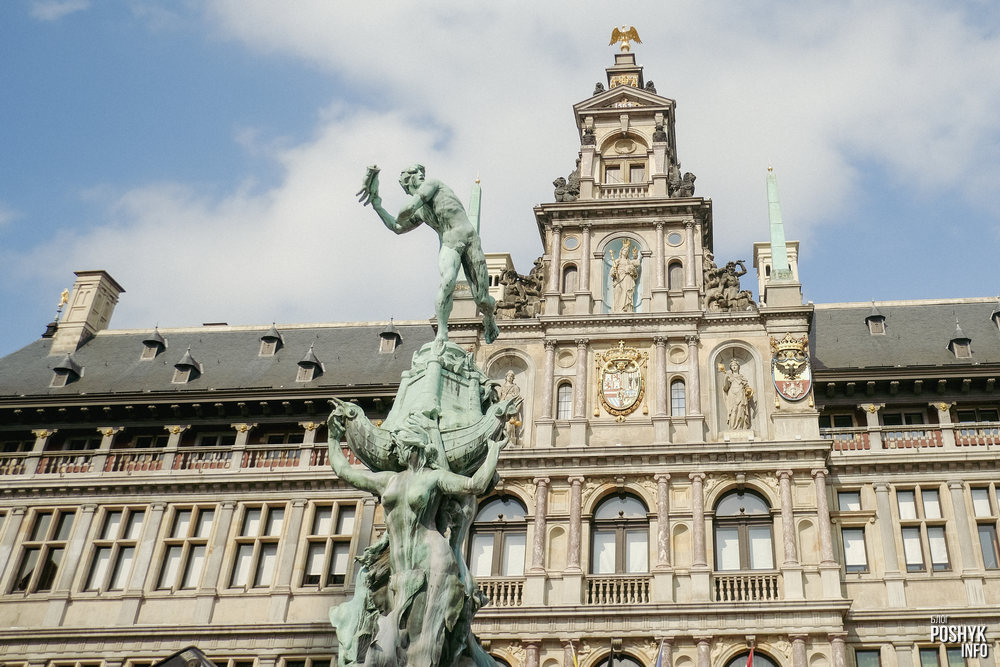
За фонтаном ещё одна важная достопримечательность – Антверпенская ратуша, построенная в 1564 году. По архитектуре это здание относится к стилю ренессанс эпохи Возрождения.
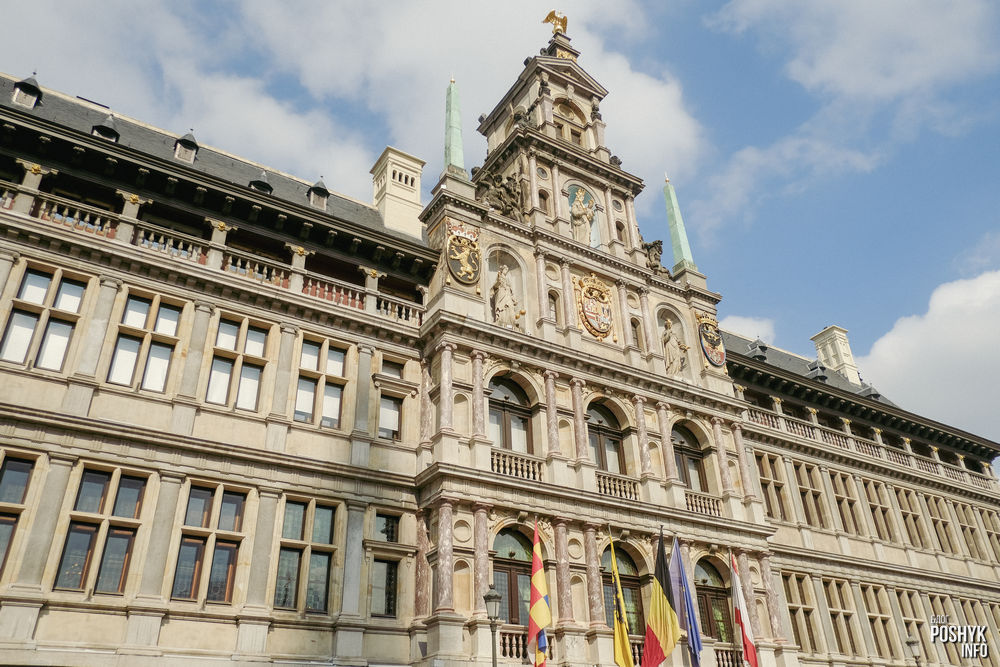
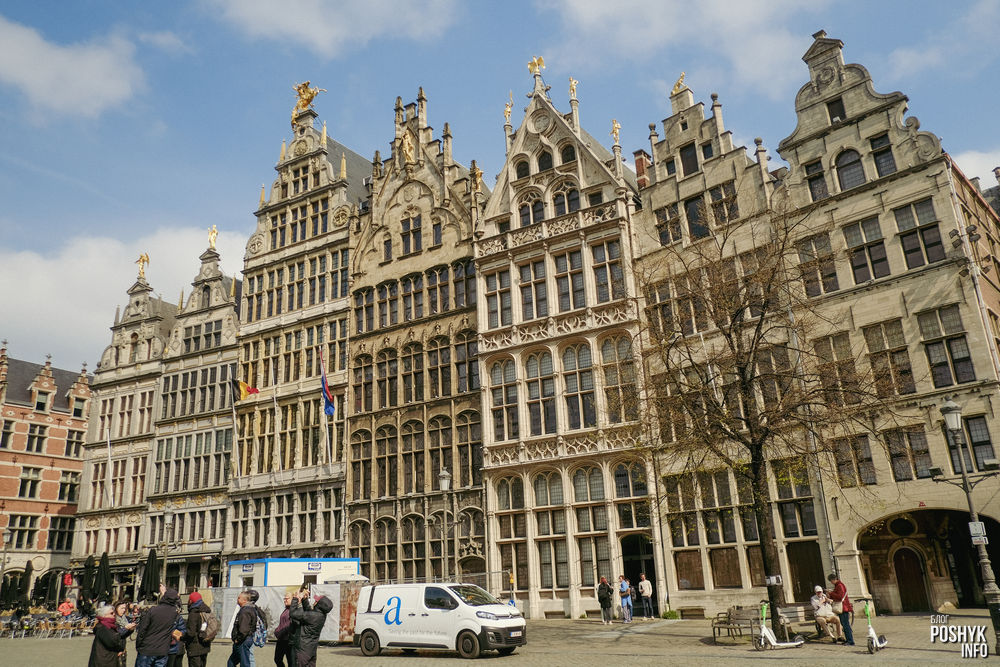
Следуя по узким бельгийским улочкам можно попасть к удивительной постройке, внешне напоминающую крепость, но на самом деле – это бывшая ратуша Vleeshuis, а сейчас местный музей.
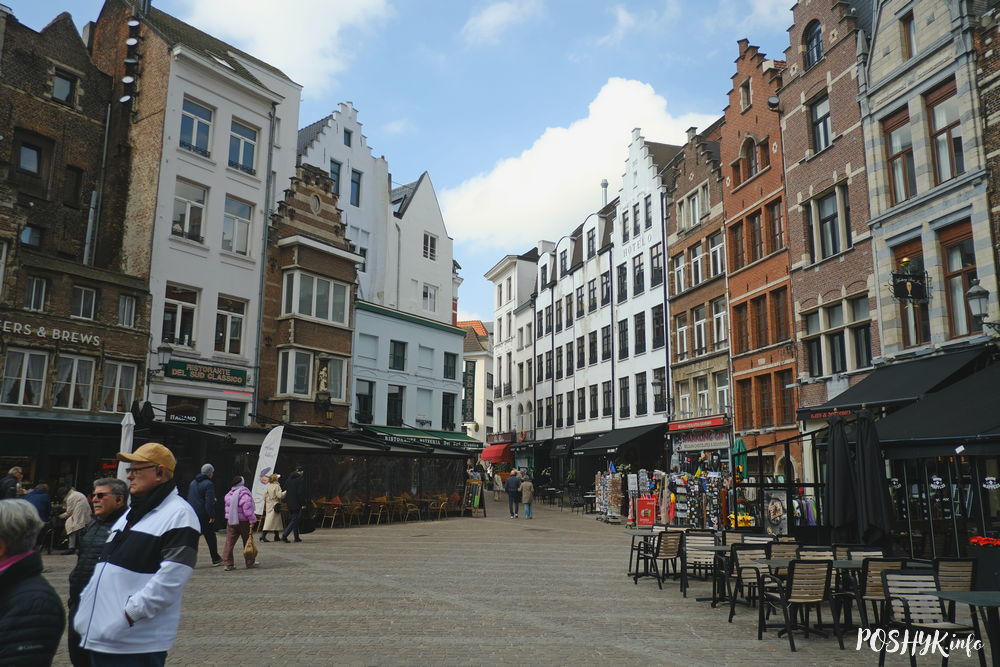
Любопытно, что на этом месте много веков подряд были мясные ряды и торговые лавки, поэтому здание часто называют “Домом мясника”.
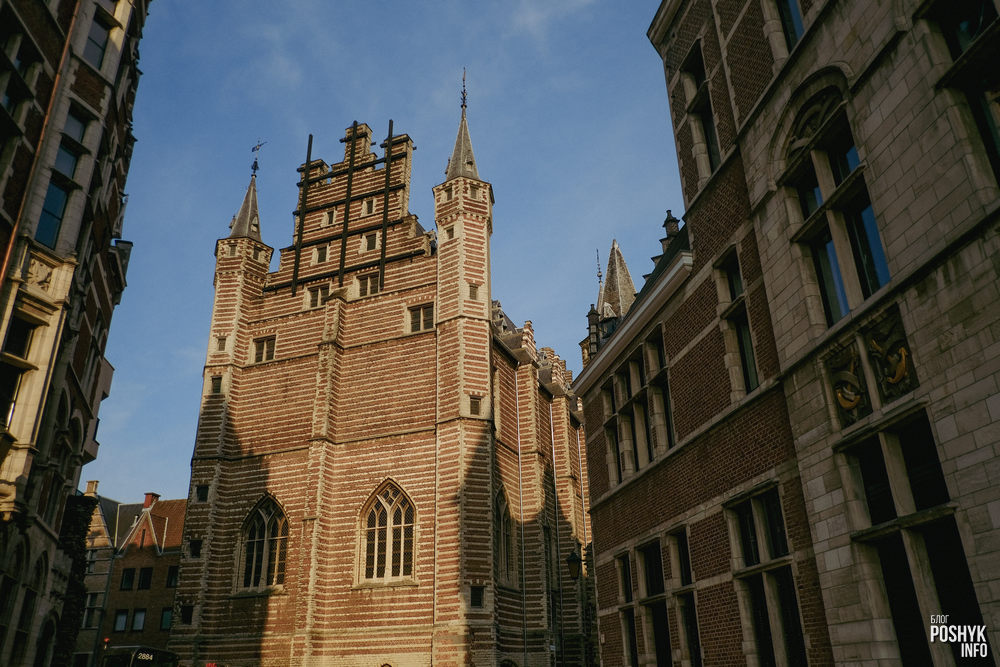
Подойдя ближе к набережной открывается вид на настоящий средневековый замок – Хет Стен (Het Steen), сегодня тут располагается Антверпенский центр туризма.
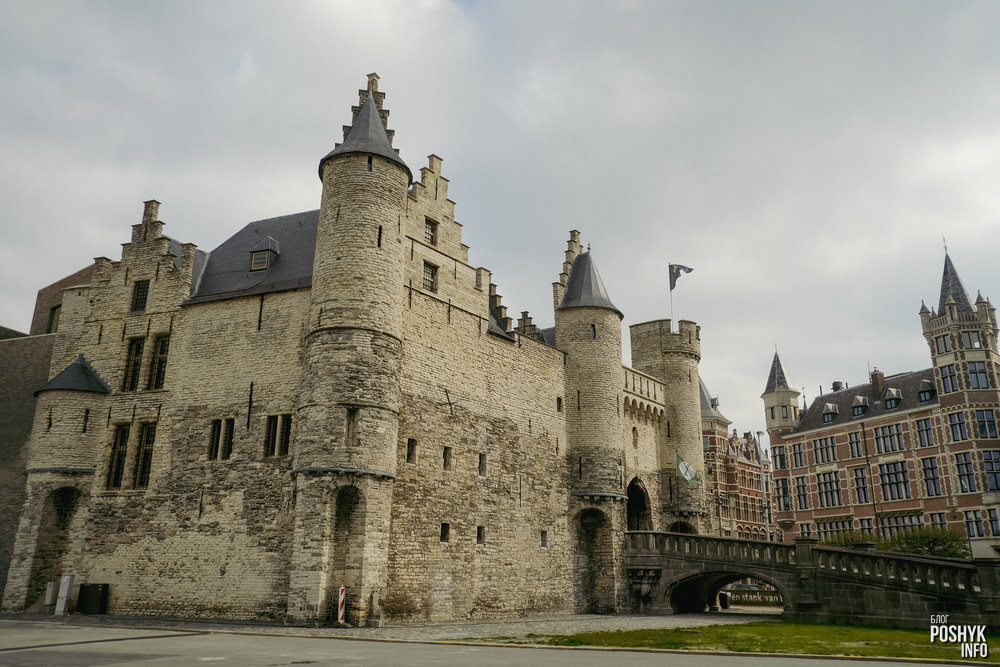
За 9 веков своей истории крепость неоднократно перестраивалась, к тому же долгие годы использовалась как тюрьма. В 19 веке были снесены крепостные стены, сам замок в тот период находился в зоне риска и мог быть утрачен.
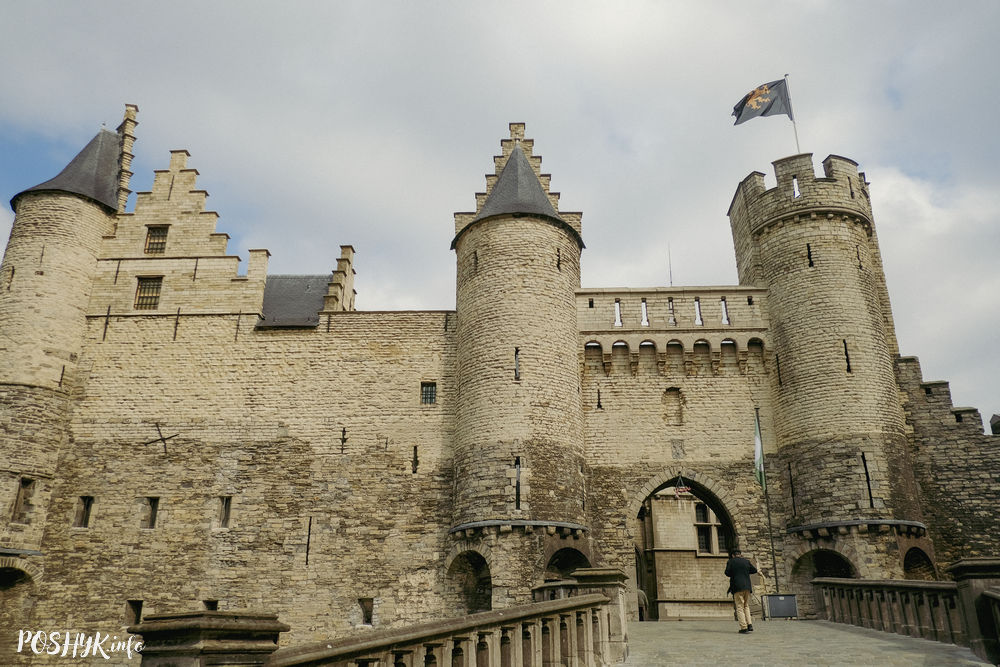
В 60-ые года, прошлого века, перед входом в Хет Стен установили памятник великану – Длинному Вапперу (персонаж Антверпенского фольклора). По легенде Длинный Ваппер пугал местных горожан, особо уделяя внимание пьяницам, заставляя их быстрее бежать с городских улиц по домам. По соседству с замком есть и современная достопримечательность – колесо обозрения. С него можно сделать шикарные снимки собора, а также посмотреть на город с высоты.
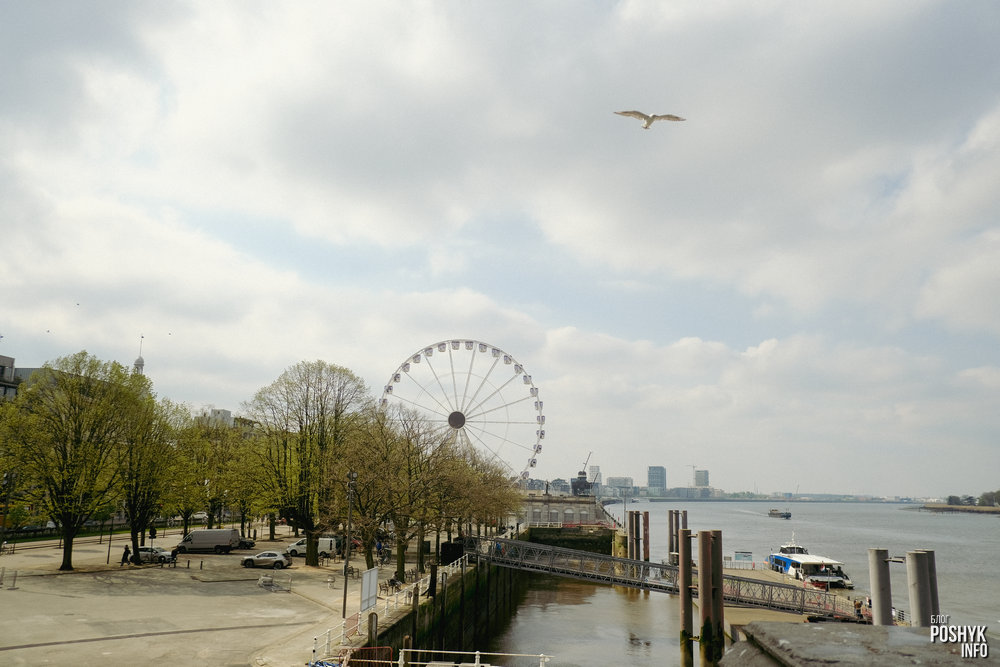
Пройдя вдоль набережной увидите старинный особняк Het Loodswezen, эклектичной архитектуры. Дом чем-то напоминает декорации для фильмов ужасов, но на самом деле тут чаще проходят современные выставки. За особняком есть мемориал Бельгийским солдатам.

На соседнем перекрёстке начинается и современная часть города Антверпен, где внимание сразу привлекает необычное здание музея MAS. Здесь множество различных экспозиций и сезонных выставок, конечно присутствуют залы посвященные истории города.
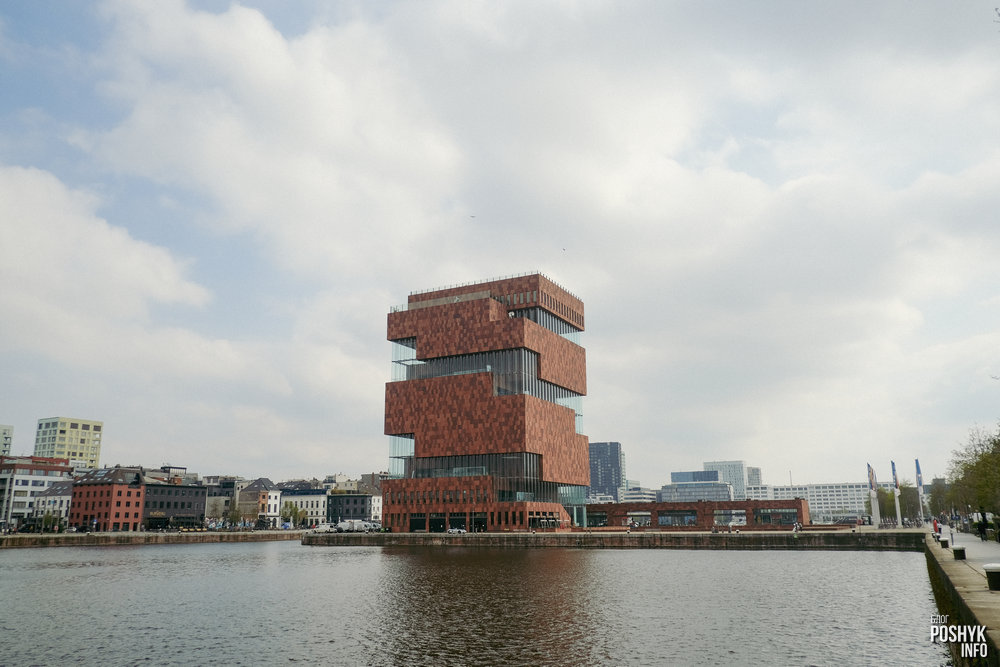
Гуляя по Антверпену обращайте внимание на мелочи, в городе хватает спрятанных фигур и любопытных форм, которые сумеют порадовать эстетикой.
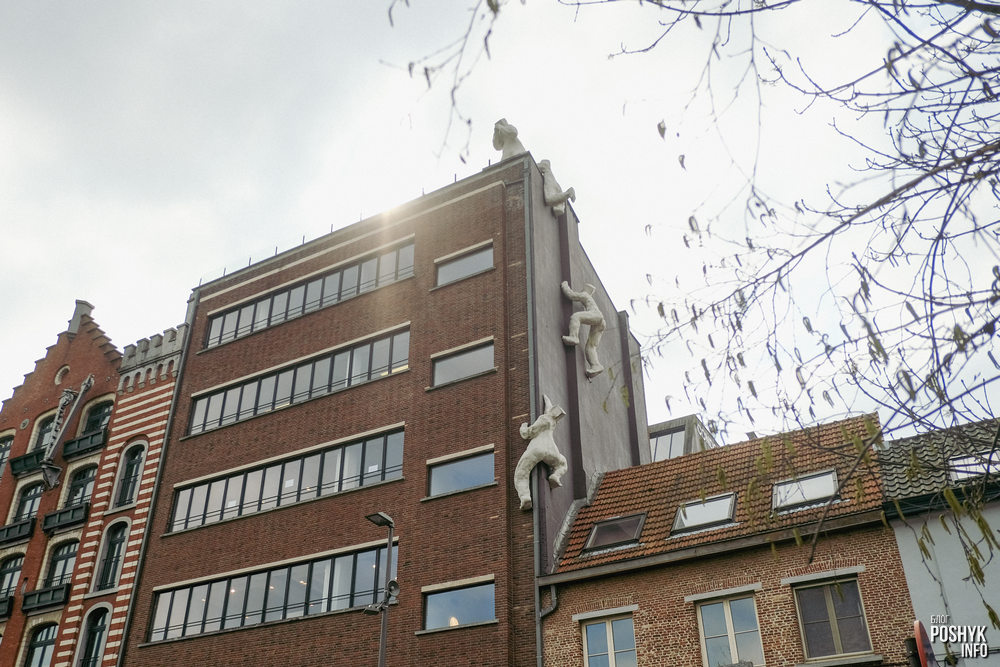
Безусловная и возможно главная достопримечательность Антверпена – это шикарное здание железнодорожного вокзала.
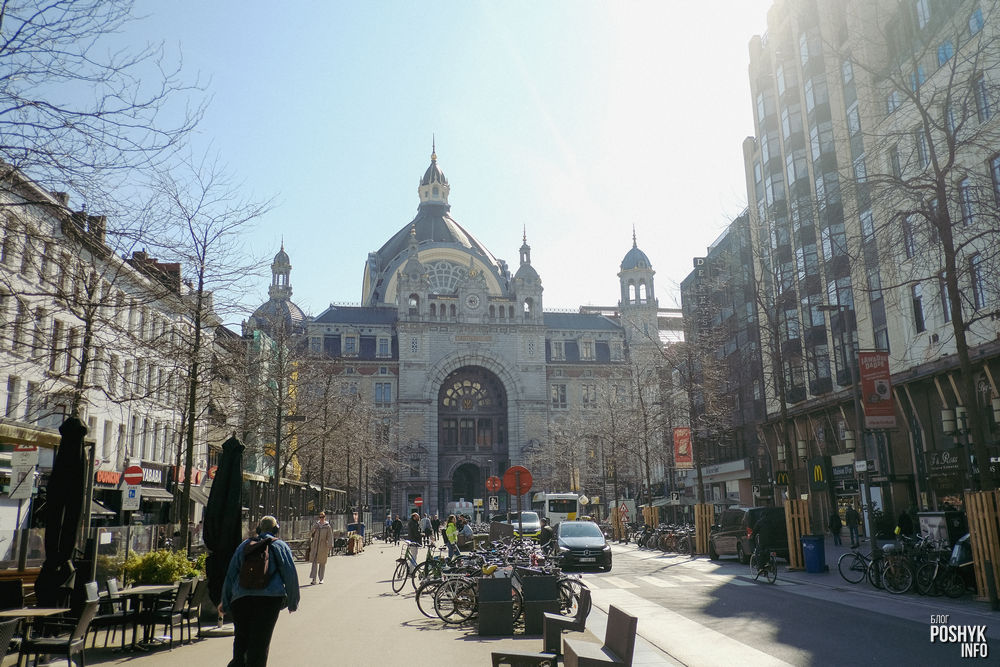
Посмотреть его нужно не только снаружи, но и заглянуть внутрь – интерьеры по-настоящему поражают, по сути тут почти бесплатный музей.
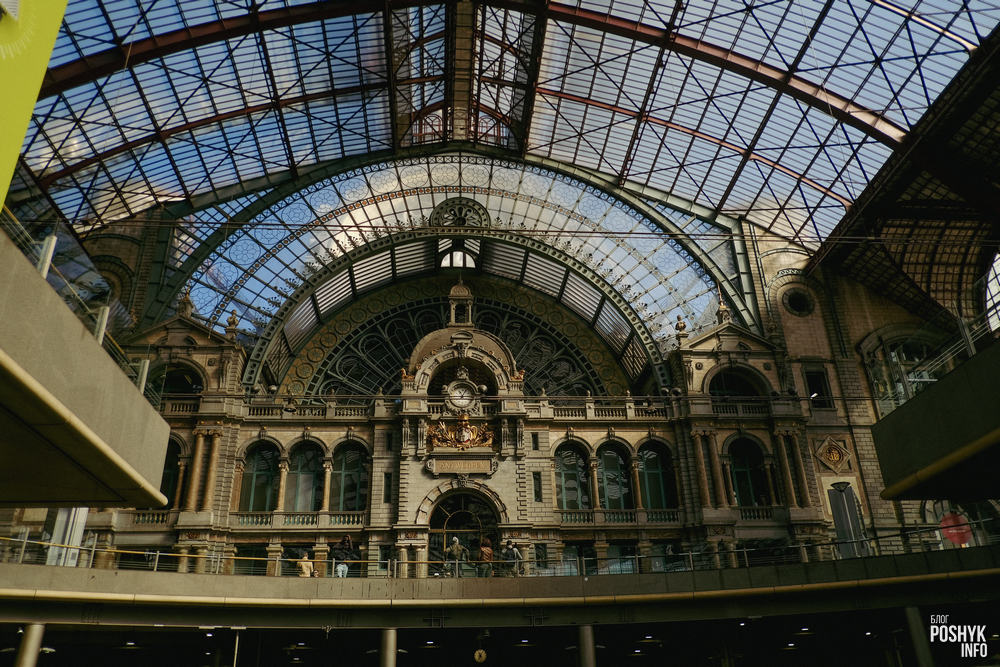
Кроме того, вокзал Антверпена своего основного назначения, перевозка пассажиров, не утратил. Отсюда отправляются все поезда как регионального назначения (к примеру можно легко съездить погулять в Гент или Брюссель), а также отправиться в соседние страны (Нидерланды, Германия, Франция).
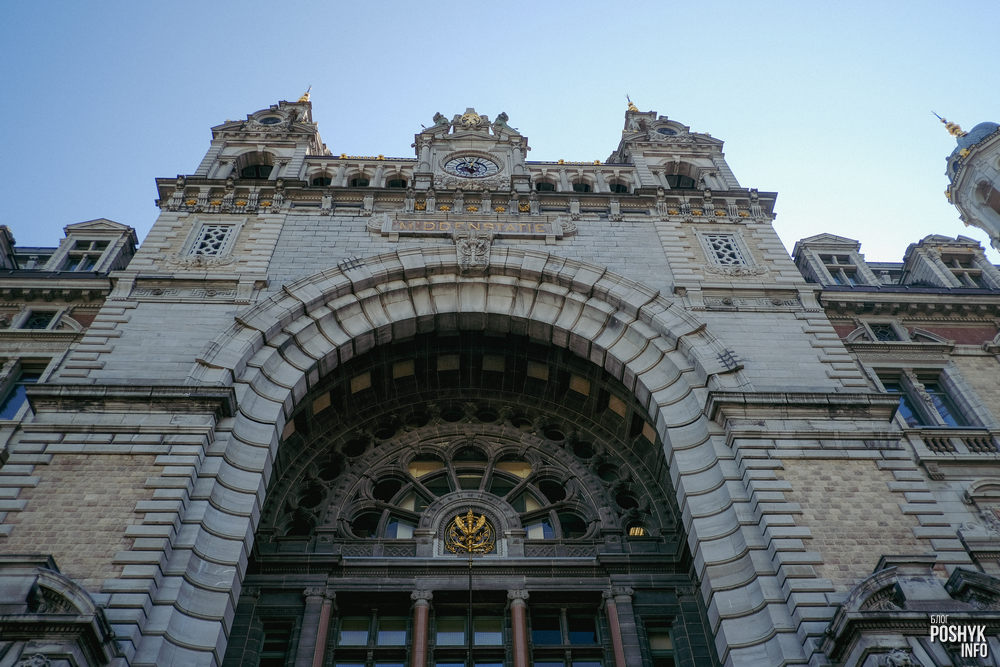
Будет интересно посмотреть и иезуитский храм Карло Борромео, который немного припрятан в закоулках города. Любопытно, что барочная архитектура не совсем типична для архитектуры Бельгии, поэтому костел отсылает нас скорее в Италию.
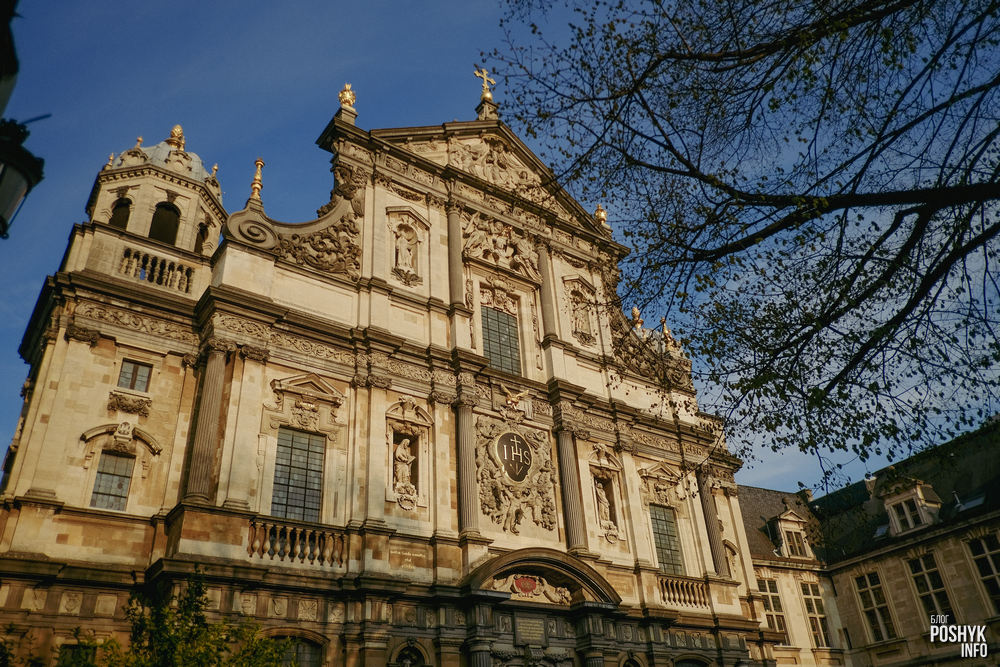
Говоря про храмы Антверпена в список стоит добавить и костел Святого Иакова, который хоть и не такой заметный как собор Богоматери, зато поражает готическими интерьерами.
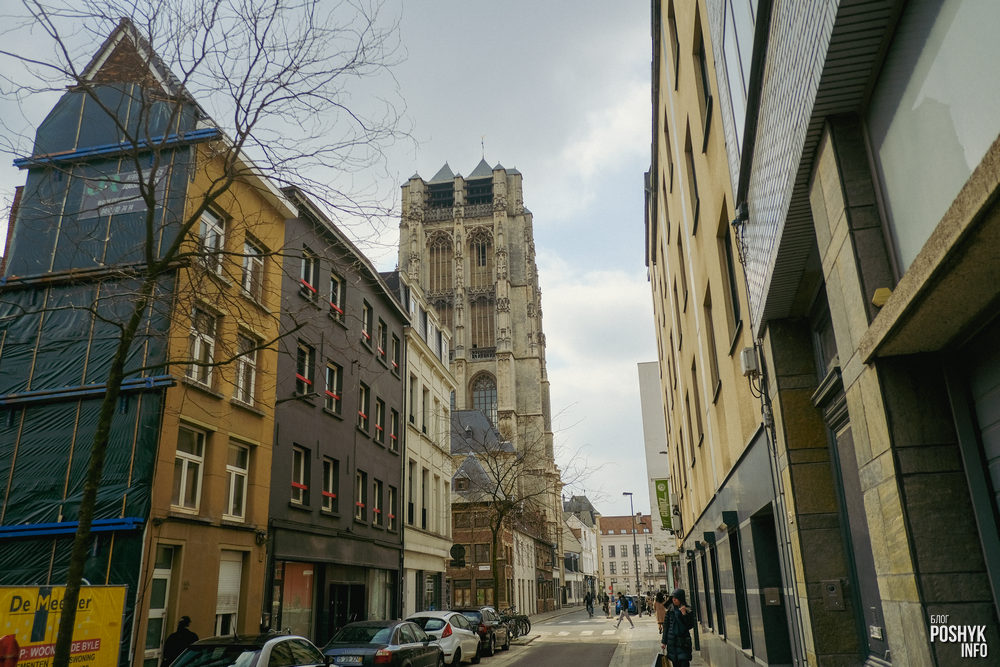
Кроме того в храме располагается капелла и надмогильная плита известного живописца Рубенса Питера Пауля с именем которого многое связано в Антверпене.
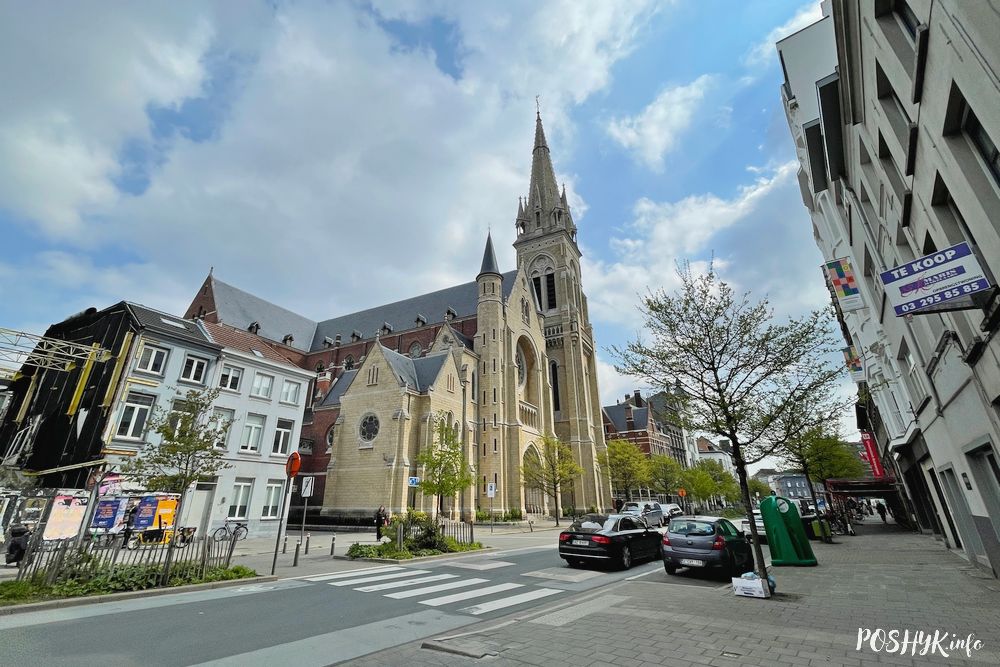
Если вас интересуют музеи Антверпена, то один из лучших вариантов для посещения – Королевский музей изящных искусств. Тут собрана огромная коллекция живописи, часто эту галерею называют одной из лучших в Бельгии.
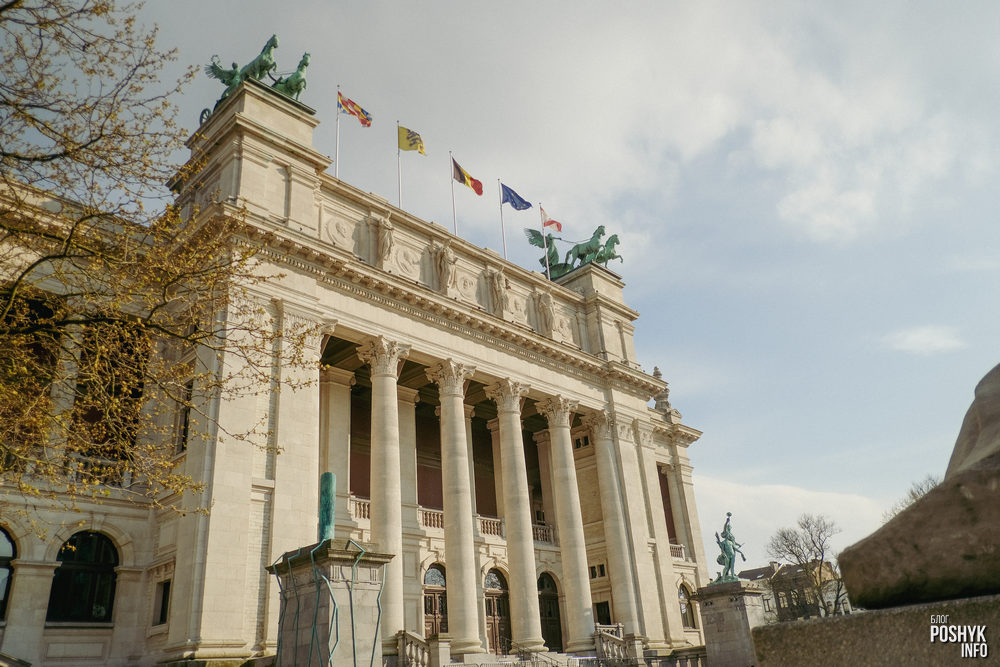
А по пути к музею обратите внимание на вот этот необычный монумент. Эту достопримечательность редко включают в списке обязательных к просмотру, а зря.
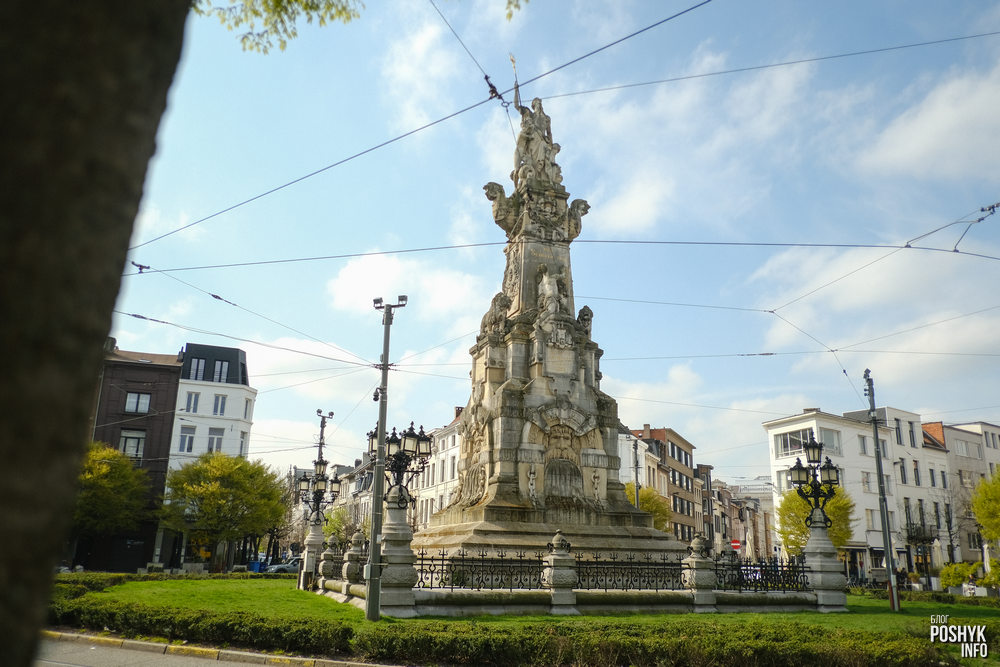
Антверпен – удивительная смесь современной и старой архитектуры, которая удачно гармонирует. Если задавать вопрос чем заняться туристу, то одна из лучших рекомендаций – это неспешно прогуляться по городу.
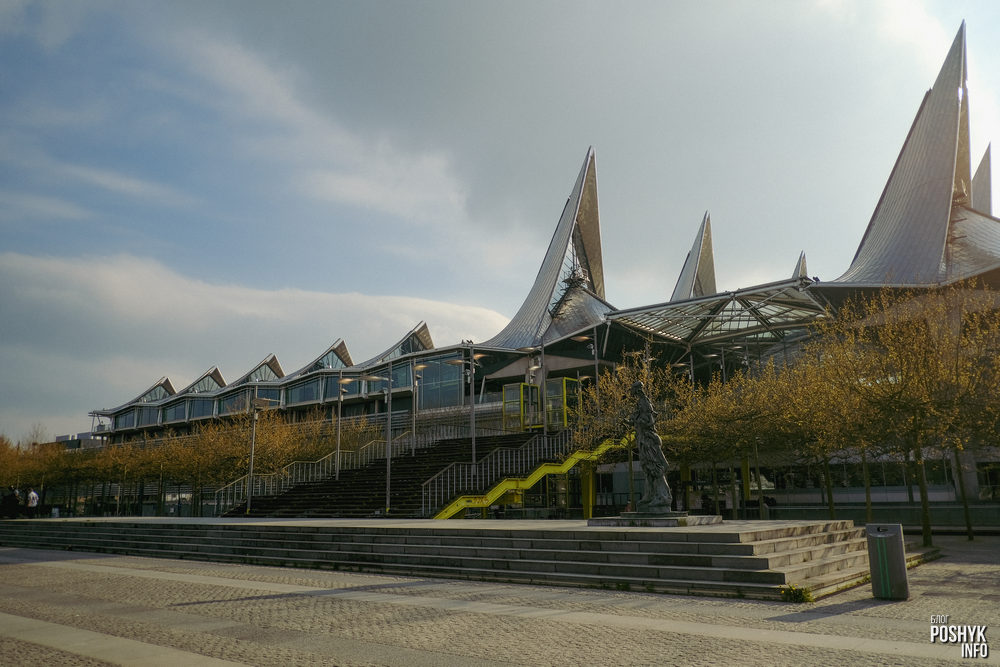
Кроме основных и популярных храмов, в городе множество малоизвестных, но достойных внимания. Описывать каждый не имеет большого смысла – просто внимательно смотрите по сторонам и красивое будет рядом.

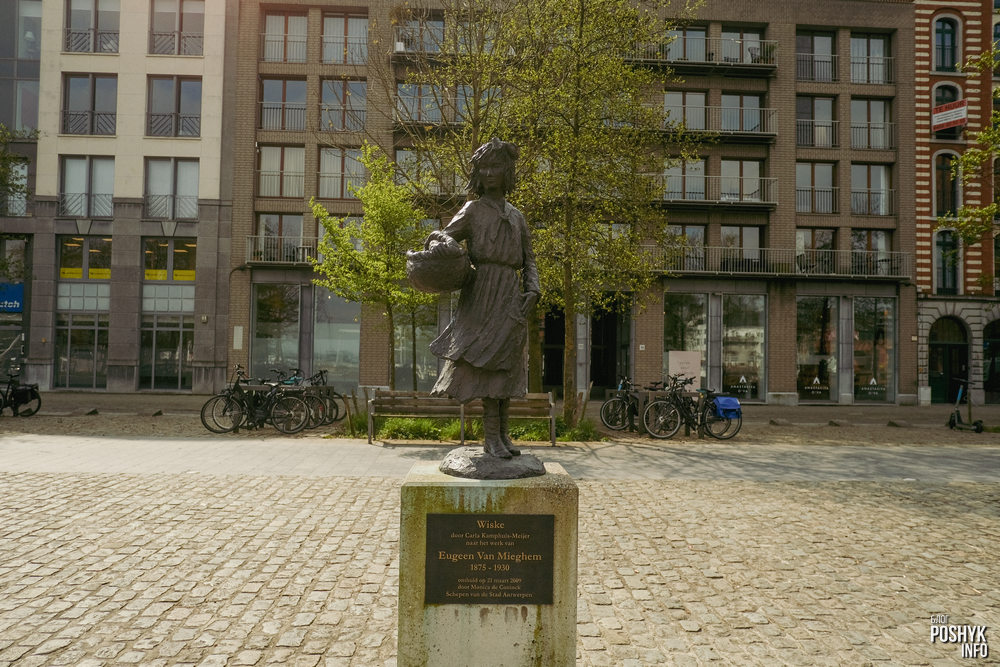
Что ещё посмотреть если в запасе день?
- Зоопарк Антверпена
- Музей эмигранта (Red Star Line Museum)
- Частный музей De Reede
- Проход под рекой (St. Anna’s Tunnel)
- Музей скульптуры под открытым небом (Middelheimpark)
- Дом-музей Рубенса
- Выбрать билеты и экскурсии онлайн
Где остановиться в Антверпене?
Гостиниц в городе хватает, во время моей поездки выбрал отель Ibis. Варианты на свой бюджет и даты посмотрите вот тут.









